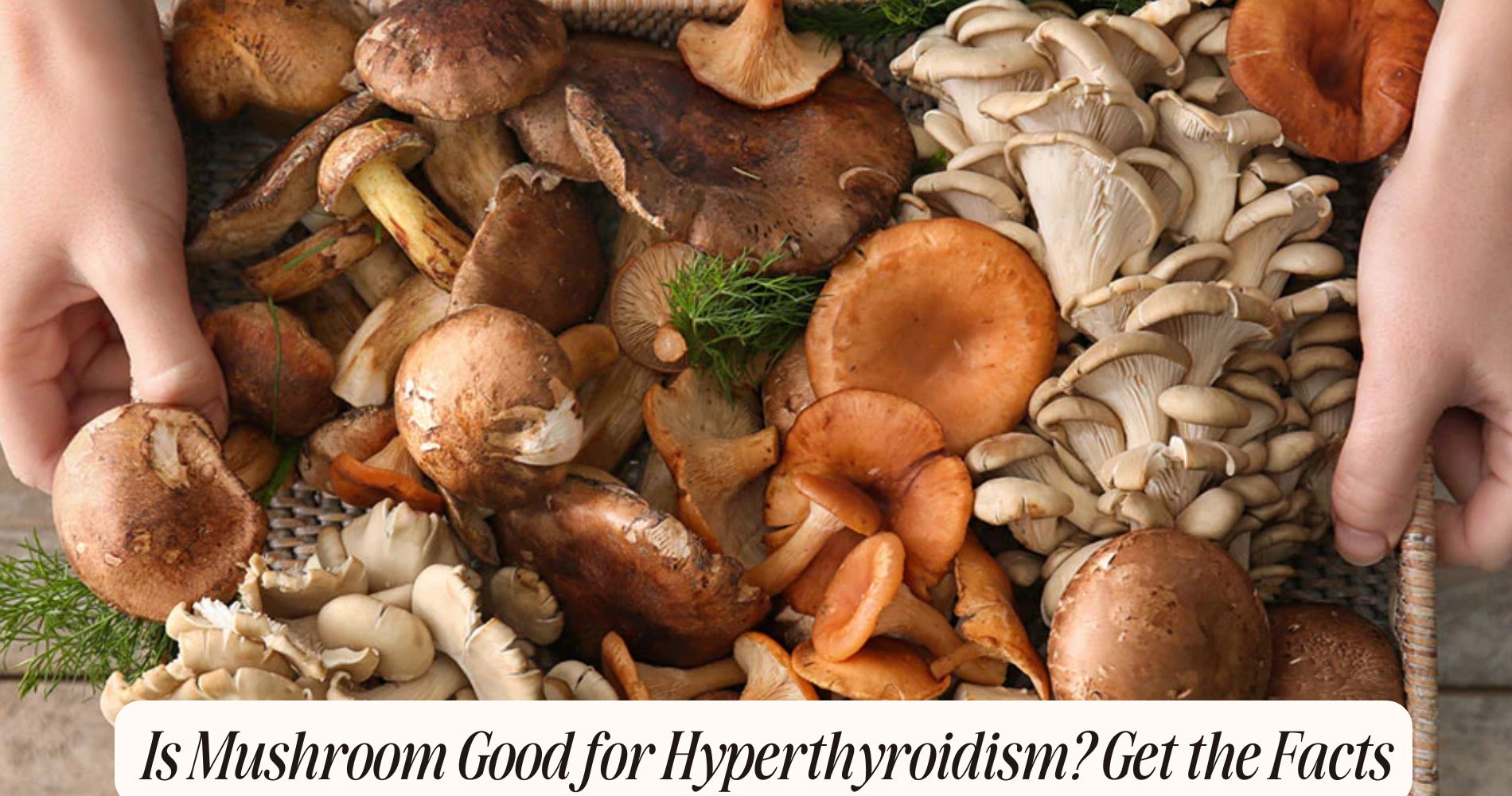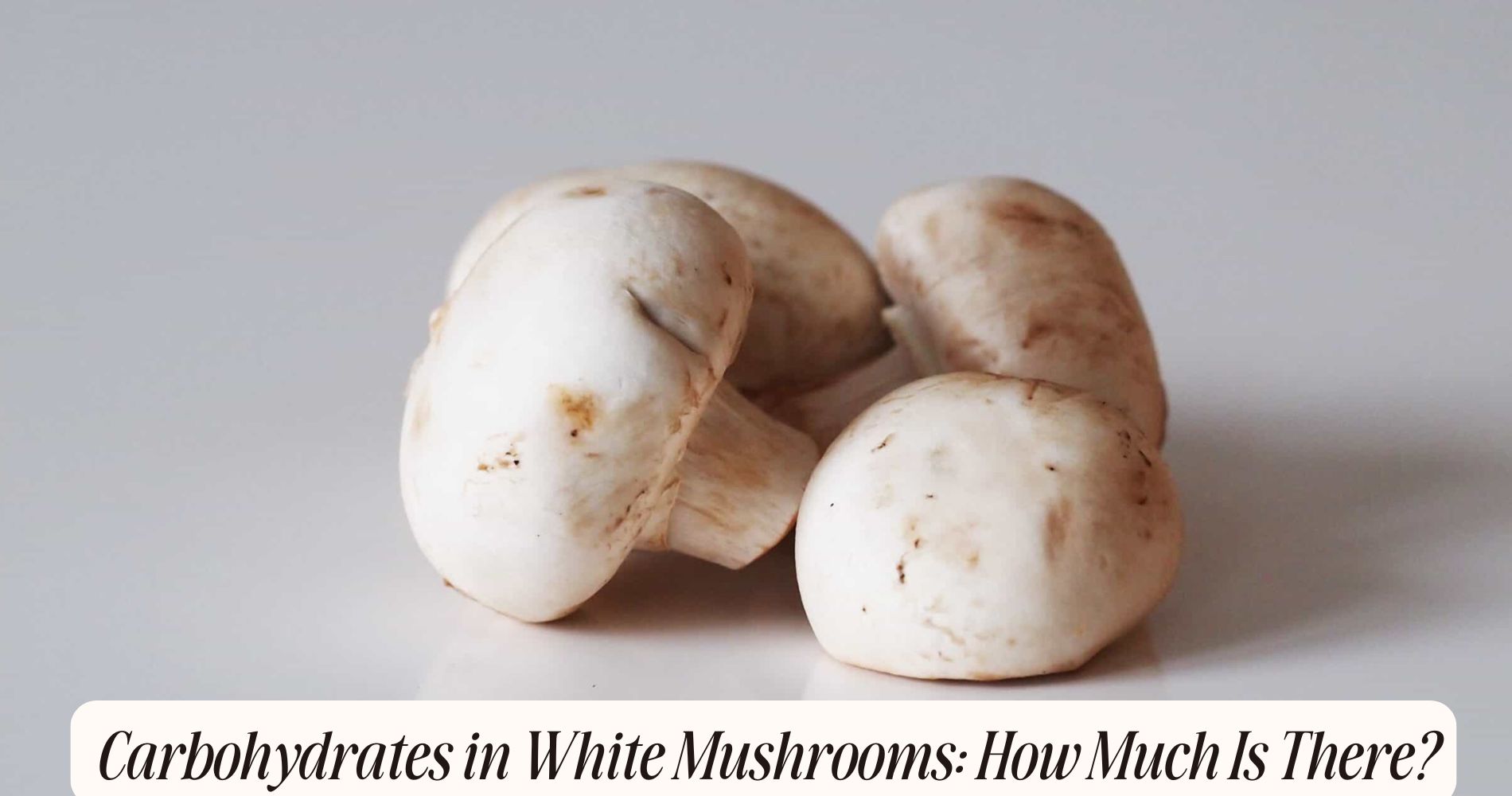
Is Mushroom Good for Hyperthyroidism? Get the Facts
Is mushroom good for hyperthyroidism? Mushrooms can be beneficial for managing hyperthyroidism due to their nutrient-rich profile and antioxidant properties. Varieties like shiitake and reishi mushrooms contain selenium and zinc, which support thyroid hormone production. Their anti-inflammatory effects might help alleviate thyroid-related inflammation. However, while mushrooms can complement your diet, they shouldn't replace conventional medical treatments. It's important to consult with your healthcare provider before making dietary changes, especially with hyperthyroidism. By incorporating mushrooms into your meals, you could enhance your overall nutrition. If you're keen to discover more about their specific benefits, there's much more to explore.
Understanding Hyperthyroidism
Hyperthyroidism, often characterized by an overactive thyroid gland, can lead to a range of symptoms that affect both physical and mental well-being. You might experience rapid heartbeat, weight loss, increased appetite, and nervousness. Fatigue and muscle weakness are common, too, making daily activities feel more challenging.
Understanding the causes of hyperthyroidism is essential in managing the condition effectively. Several factors can contribute to hyperthyroidism. Graves' disease, an autoimmune disorder, is one of the most common causes, resulting in an overproduction of thyroid hormones. Other causes include thyroid nodules and inflammation of the thyroid gland, known as thyroiditis.
Certain medications and excessive iodine intake can also lead to an overactive thyroid. Being aware of the symptoms of hyperthyroidism helps you recognize when to seek medical advice. If you notice sudden mood swings or heightened anxiety, these could be indicators of the condition.
Early diagnosis and management can greatly improve your quality of life. If you suspect you have hyperthyroidism, consult a healthcare professional for proper evaluation and treatment options. Recognizing and understanding your symptoms is the first step toward effective management.
Nutritional Benefits of Mushrooms
Mushrooms are a powerhouse of nutrition, offering a variety of health benefits that can support your overall well-being. These fungi come in numerous mushroom varieties, each providing unique nutrients. For instance, shiitake mushrooms are rich in polysaccharides, which can boost your immune system, while portobello mushrooms are a great source of fiber and potassium, promoting heart health.
Mushrooms are low in calories and fat, making them an excellent addition to a balanced diet. They're packed with vitamins like B vitamins, which play a vital role in energy production and metabolism. Additionally, mushrooms contain antioxidants that help combat oxidative stress, reducing the risk of chronic diseases.

The health benefits don't stop there; mushrooms also provide essential minerals such as selenium, which supports thyroid function, and copper, important for red blood cell formation.
Incorporating a variety of mushrooms into your meals can enhance both flavor and nutrition. From stir-fries to soups, the versatility of mushrooms allows you to easily enjoy their myriad health benefits, making them a smart choice for anyone looking to improve their diet.
Mushrooms and Thyroid Function
Exploring the connection between mushrooms and thyroid function reveals some intriguing insights into how these nutritious fungi can support your endocrine health.
Certain mushroom varieties, like shiitake and reishi, are rich in essential nutrients, including selenium and zinc, which play vital roles in thyroid hormone production and regulation. These minerals are essential for maintaining ideal thyroid health, as they help convert the inactive thyroid hormone (T4) into the active form (T3) that your body needs.

Additionally, the antioxidants found in mushrooms can help combat oxidative stress, which may benefit overall thyroid function. While some mushrooms also possess anti-inflammatory properties, they could potentially assist in alleviating inflammation related to thyroid disorders.
It's important to note that while mushrooms can be a wonderful addition to a balanced diet, they shouldn't replace medical treatment for thyroid issues.
Instead, consider incorporating various mushroom varieties into your meals to enhance your nutritional intake and support your thyroid health alongside conventional therapies.
Always consult with a healthcare professional before making significant changes to your diet or treatment plan, especially if you have existing thyroid concerns.
Research on Mushrooms and Hyperthyroidism
While you might be aware of the nutritional benefits of mushrooms, their potential role in managing hyperthyroidism is less commonly discussed. Recent research has begun to explore how different mushroom varieties may impact thyroid health, particularly in individuals with hyperthyroidism. Some studies suggest that certain mushrooms, like shiitake and reishi, possess anti-inflammatory and immune-modulating properties that could alleviate symptoms associated with hyperthyroidism.

The health benefits of mushrooms extend beyond basic nutrition. For example, mushrooms are rich in antioxidants, which can help combat oxidative stress linked to thyroid dysfunction. Additionally, some compounds found in mushrooms may help regulate hormone levels.
However, while preliminary findings are promising, more thorough studies are needed to establish definitive links between specific mushroom varieties and hyperthyroid management.
It's essential to approach this topic with caution. While incorporating mushrooms into your diet may offer health benefits, they shouldn't replace conventional medical treatments for hyperthyroidism. Always consult healthcare professionals before making significant dietary changes, especially if you have thyroid issues.
This balanced approach guarantees you benefit from mushrooms while prioritizing your overall health and well-being.
Incorporating Mushrooms Into Your Diet
When considering how to enhance your diet, incorporating various mushroom varieties can be a flavorful and nutritious choice. Mushrooms are low in calories and rich in essential nutrients, making them an excellent addition to your meals. They contain antioxidants, vitamins, and minerals that can support overall health, which is particularly important for those managing hyperthyroidism.
To effectively incorporate mushrooms into your diet, try experimenting with different mushroom recipes. For instance, you can sauté shiitake or portobello mushrooms with garlic and spinach for a delicious side dish. Alternatively, add diced mushrooms to soups, salads, or stir-fries for added texture and flavor.
When following dietary tips, aim for variety. Different mushrooms offer unique health benefits; for example, oyster mushrooms may help regulate blood sugar, while reishi mushrooms are known for their immune-boosting properties.

Remember to focus on fresh, organic options whenever possible. You can also explore mushroom-based supplements if you want to enhance your intake further. However, consult with a healthcare professional before making any significant dietary changes, especially if you have hyperthyroidism.
Balancing your meals with mushrooms can contribute to a healthier lifestyle.
Discover the Power of SUPER MUSHROOM GUMMIES
As you explore the benefits of mushrooms for hyperthyroidism, consider incorporating Well Gummies' SUPER MUSHROOM GUMMIES into your routine. These convenient gum chews are packed with 10 types of powerful mushrooms, designed to fuel your brain, energize your body, and support your overall well-being. With a delicious fresh wild berry flavor, these vegan gummies offer a natural way to enjoy calmer energy, sharper focus, and robust immune support—all without the jitters or crashes. Discover how easy it is to add these gummies to your daily routine and enjoy the benefits all day long.
Frequently Asked Questions
Can Mushrooms Interact With Hyperthyroidism Medications?
Mushrooms can provide various benefits, but it's vital to take into account potential medication interactions. Always consult your healthcare provider before adding mushrooms to your diet, especially if you're on hyperthyroidism medications, to guarantee safety and effectiveness.
Are There Specific Mushroom Types Recommended for Thyroid Health?
Certain mushrooms, like shiitake and reishi, can support thyroid function due to their antioxidant properties and potential immune benefits. However, it is crucial to consult a healthcare provider for personalized recommendations based on your health needs.
How Should Mushrooms Be Prepared for Maximum Benefit?
To maximize nutrient retention and flavor enhancement, sauté mushrooms lightly in olive oil, steam, or roast them. Avoid boiling, as it can leach nutrients. Experiment with herbs and spices to elevate their taste without overpowering their benefits.
Can Mushroom Allergies Affect Hyperthyroidism Symptoms?
Mushroom allergies can indeed affect your hyperthyroidism symptoms. If you experience allergy symptoms like itching or swelling, it's essential to avoid mushrooms, as inflammation may worsen your overall condition and diminish potential mushroom benefits.
What Are the Best Cooking Methods for Mushrooms?
To cook mushrooms, try sautéing for enhanced flavors and texture, or grilling to bring out smoky notes. Both methods retain nutrients, offering sautéed benefits and grilled flavors that elevate your dishes while keeping them healthy.
Conclusion
Incorporating mushrooms into your diet can offer various nutritional benefits, but their direct impact on hyperthyroidism remains inconclusive. While some studies suggest mushrooms may support overall thyroid function, more research is needed to establish a clear connection. If you have hyperthyroidism, it is crucial to consult with your healthcare provider before making significant dietary changes. Balancing your diet with a variety of foods, including mushrooms, can contribute to your overall well-being while managing your condition effectively.




